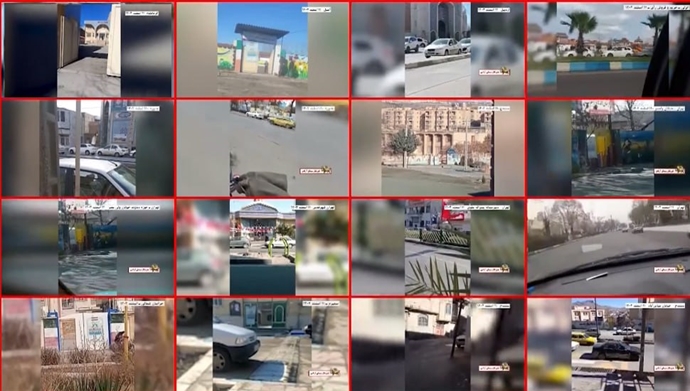
On Friday, March 1, Iran held its Parliamentary election and Assembly of Experts amid widespread skepticism. According to comprehensive assessments and statistics gathered from thousands of polling stations, the turnout for this election stood at 8.2%, which translates to 5 million individuals. Among these, a significant portion comprised invalid votes. In fact, the media affiliated with the regime acknowledged that invalid votes prevailed in numerous major cities.
This electoral event, touted by the regime as a crucial step following the 2022 uprising, carried immense significance for the clerical establishment. In the wake of the uprising, it became glaringly apparent to the world that the regime lacked legitimacy among the Iranian populace, with growing calls for regime change and the establishment of a democratic Republic.
In a desperate bid to salvage its waning authority, the regime resorted to extensive propaganda campaigns and blatant rigging tactics to inflate voter turnout. The regime’s Supreme Leader Ali Khamenei implored citizens to participate, framing high electoral engagement as a cornerstone of national security. However, for many Iranians, the notion of “national security” under the regime equated to the perpetuation of the oppressive Velayat-e Faqih system.
The regime’s security apparatus, including the Islamic Revolutionary Guard Corps, Basij, and Ministry of Intelligence, spared no effort in coercing compliance and concealing the glaring nationwide boycott. Under the directives of Khamenei, the Ministry of Interior, led by Ahmad Vahidi, a former commander of the Quds Force, engaged in widespread manipulation, including vote rigging and the relaxation of voter identification requirements.
Congratulations to the people of #Iran, and their will and determination,
In the referendum to boycott the regime’s sham election, you said a resounding “No” to dictatorship.
The people of Iran vote for the regime’s overthrow. pic.twitter.com/Q9XUIgYMwd— Maryam Rajavi (@Maryam_Rajavi) March 1, 2024
Despite these machinations, the regime’s pleas fell on deaf ears, as evidenced by the resounding boycott that transpired. This mass rejection of the regime’s electoral charade dealt a significant blow to religious fascism, showcasing the irrelevance of coerced participation in a system devoid of choice. The Iranian Resistance, spearheaded by the Mujahedin-e-Khalq Organization (MEK/PMOI), had long advocated for a comprehensive boycott, mobilizing Resistance Units across the nation to promote this cause.
On March 1, Iranians united in defiance, delivering a powerful rebuke to the regime’s authoritarian grip. The Social Headquarters of the MEK meticulously monitored polling stations nationwide, documenting instances of fraud and intimidation. Their efforts, coupled with widespread grassroots mobilization, exposed the facade of legitimacy shrouding the regime’s electoral process.
In the aftermath of the boycott, the regime’s claims of electoral success crumbled under scrutiny. The Social Headquarters of the MEK’s evaluations revealed a dismal participation rate of just 8.2%, equivalent to a mere 5 million individuals. Maryam Rajavi, the President-elect of the Iranian Resistance, hailed the boycott as a testament to the Iranian people’s unwavering determination to defy tyranny.
Mrs. Rajavi stated that the Iranian people’s resounding “No” signals the dawn of a new era of resistance. The regime emerges from this ordeal weakened and vulnerable, with its demise imminent. As the Iranian populace continues to reject the shackles of religious fascism, the path toward freedom and democracy grows ever clearer. The decisive “No” uttered by the Iranian people serves as a harbinger of impending upheaval, heralding the downfall of tyranny and the dawn of a new era of liberation.
